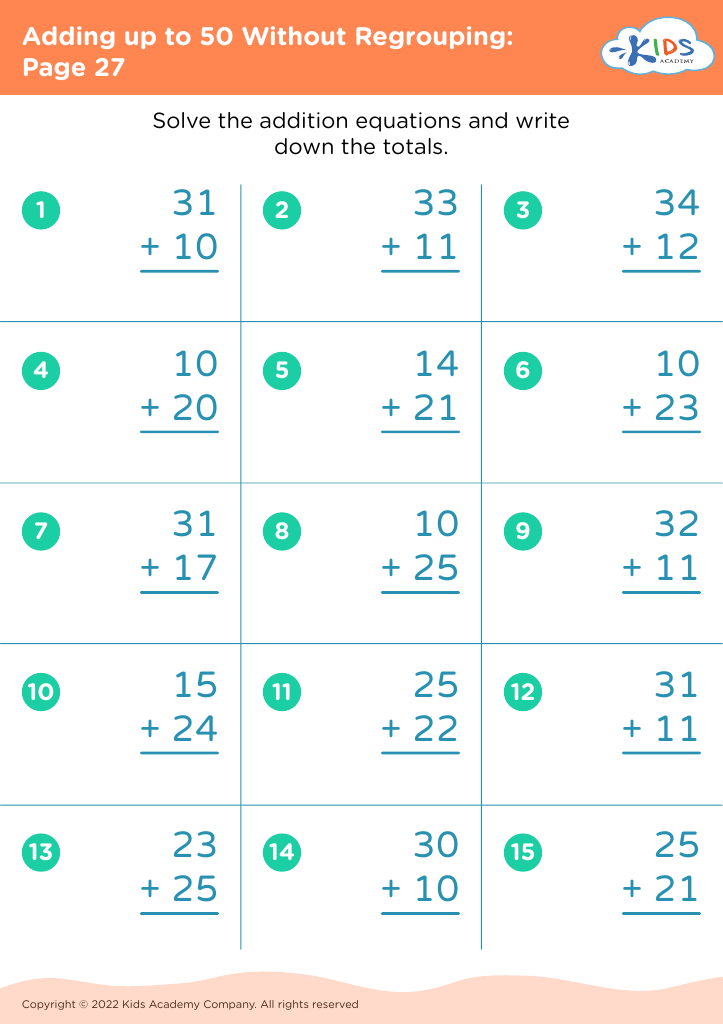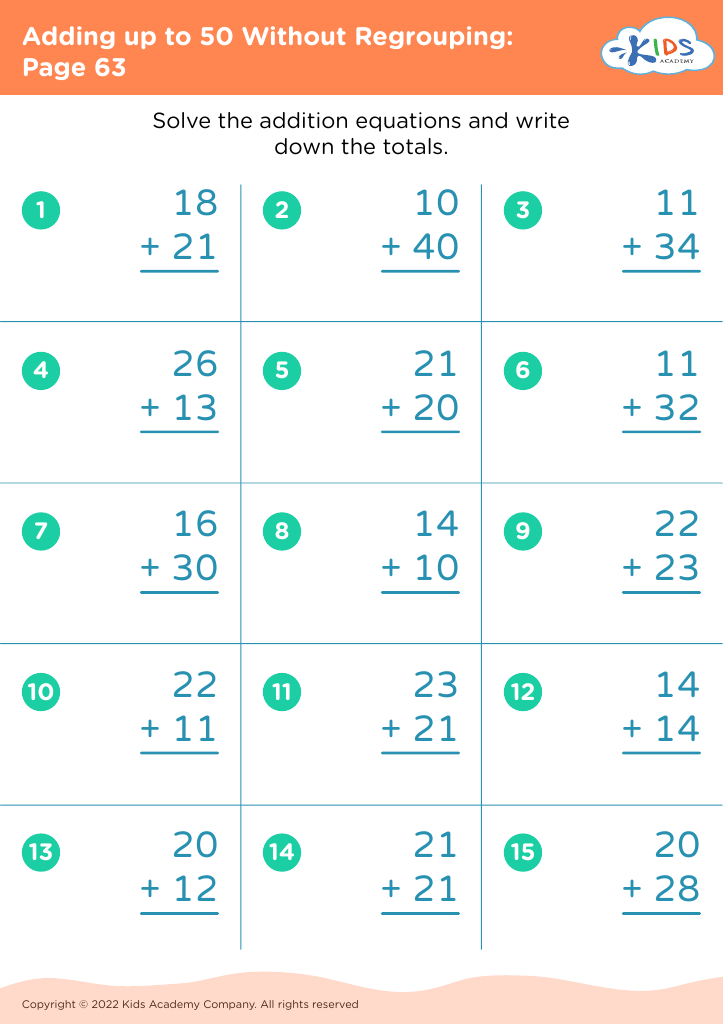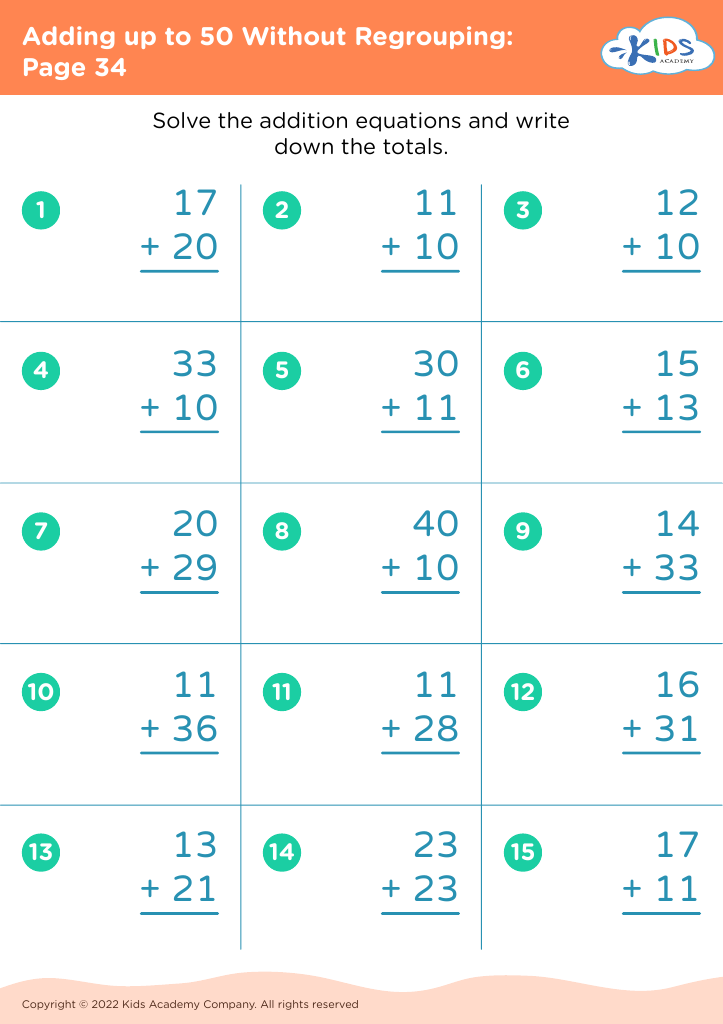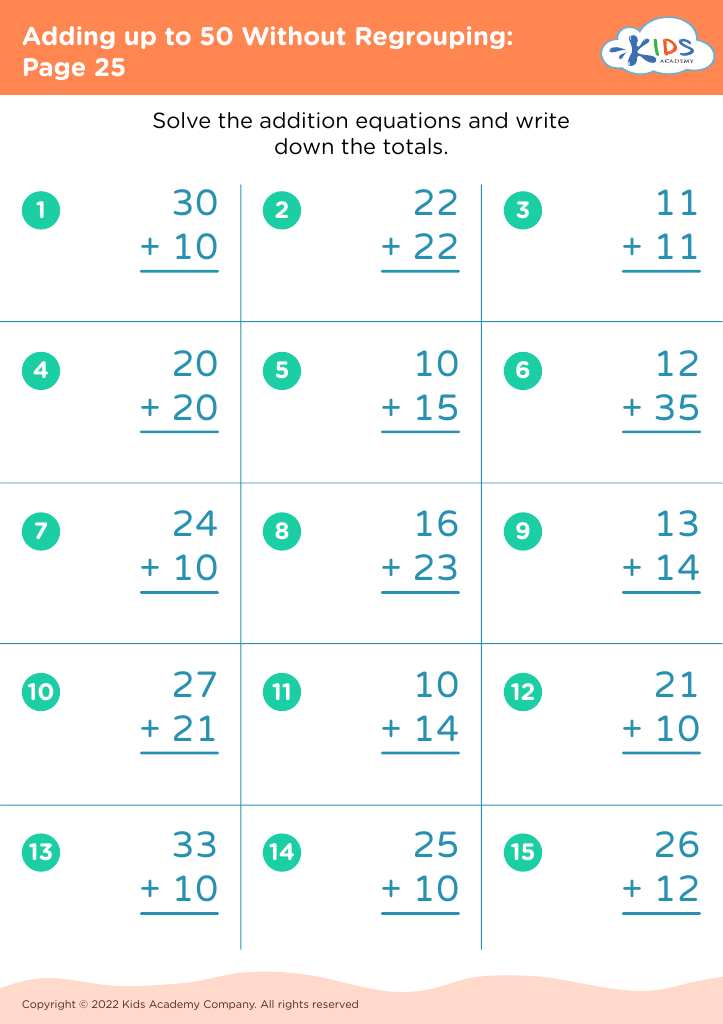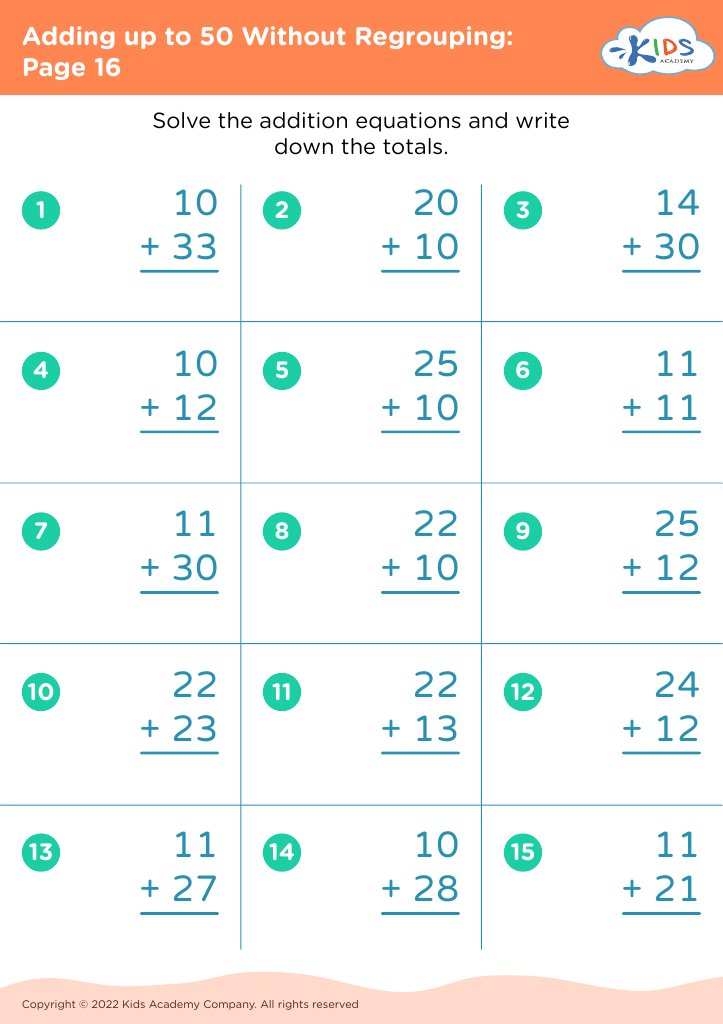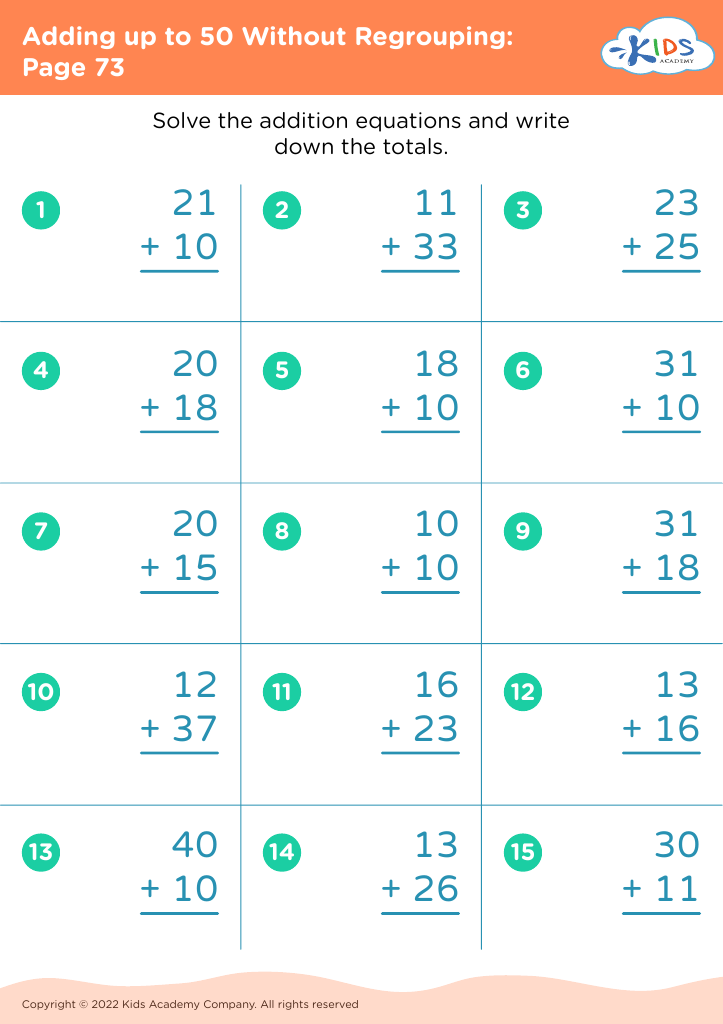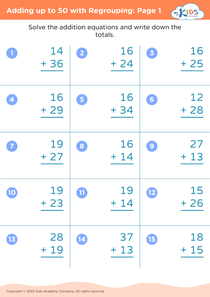Understanding fractions Adding up to 50 Without Regrouping Worksheets for Ages 3-8
13 filtered results
-
From - To
Discover engaging and educational "Understanding Fractions Adding up to 50 Without Regrouping Worksheets" designed for children ages 3-8. These carefully crafted worksheets focus on foundational math skills, emphasizing understanding fractions and simple addition without the need for regrouping. Kids Academy offers a fun, interactive way for early learners to grasp key concepts, building confidence in their math abilities. Perfect for parents and teachers, these resources help young students practice and master adding numbers up to 50 through vibrant illustrations and age-appropriate challenges. Foster early math success with our comprehensive, printable worksheets today!
Understanding fractions and simple addition are crucial foundational skills for young learners aged 3 to 8. At this developmental stage, their cognitive abilities are rapidly evolving, and early introduction to mathematical concepts can have a significant impact on their future academic success.
Learning fractions, even at a basic level, helps children grasp the idea of parts making up a whole. This understanding can be foundational for more complex mathematical concepts they'll encounter later. When children work with fractions, they also improve their reasoning and problem-solving skills, which are essential not only for mathematics but for everyday decision-making and logical thinking.
Additionally, mastering simple addition without the need for regrouping reinforces their understanding of numbers and arithmetic operations. Being able to confidently add numbers up to 50 is a notable milestone that boosts children's confidence in math, encouraging a positive attitude towards the subject.
Both fractions and simple addition are building blocks for more complex math they will encounter in subsequent grades. Students who have a sturdy foundation in these areas are less likely to struggle with advanced mathematical concepts, leading to continual academic growth. Therefore, parents and teachers should prioritize these early mathematical skills to set the stage for long-term educational success while making math enjoyable and approachable for young learners.


